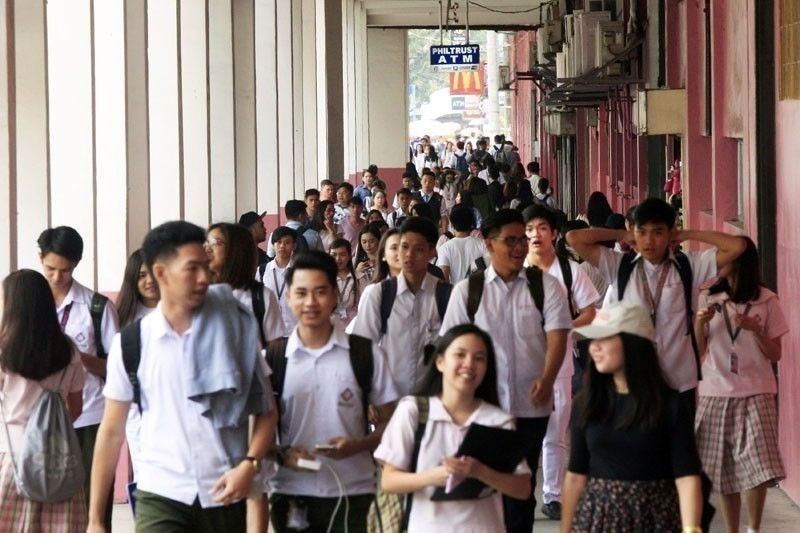House to review K to 12

MANILA, Philippines — The House of Representatives will review the effectiveness of the K to 12, or 12-year basic education program, Speaker Alan Peter Cayetano said yesterday.
“We in the House are of the consensus that K-12 is not living up to its promise, which is, after you finish senior high school, you don’t have to go to college. You gain skills to be employed,” he said.
Cayetano said the program gives senior high school students the option to take vocational and technical subjects that would prepare them for future employment.
“But many schools still lack equipment, whether it is automotive, electrical or sports. So there are issues that we have to address,” he added.
The Department of Education (DepEd) has received large increases in its annual budget in recent years because of the funding requirement of the K-12 curriculum, which the government started to implement in the 2012-2013 school year.
For next year, the DepEd is allocated P551.7 billion, P20.2 billion more than this year’s P531.5 billion. On top of the P20.2 billion, the House added P850 million, of which P650 million is for the improvement of the 12-year basic education program.
Non-profit organization Philippine Business for Education (PBEd) has said it is too early to judge the effectiveness of the additional two senior high school years.
Businessman Ramon del Rosario Jr., who is PBEd chairman, said recent K-12 graduates “took the first 10 years out of the old curriculum and just added Grades 11 and 12.”
“We don’t have real graduates of K-12 yet, so how can we judge the effectiveness of the program?” he asked.
He said PBEd is ready to participate in any assessment of the new 12-year basic education.
Del Rosario’s Phinma group of companies has investments in at least three universities in Nueva Ecija, Pangasinan and Iloilo, and a college in Cagayan de Oro City.
Some lawmakers have expressed concern over what they described as the declining performance of high school graduates in national achievement examinations.
They also cited a recent survey showing that many companies were not willing to hire K-12 graduates and would prefer applicants with college degrees.
Opponents of extended basic education had warned education authorities that the public school system might not be ready for K to 12 due to lack of classrooms, facilities, equipment and personnel.
Many parents have complained that through K to 12, the government just added two years of expenses for the high school education of their children without clear proof that the program would prepare them better for the future.
- Latest
- Trending































